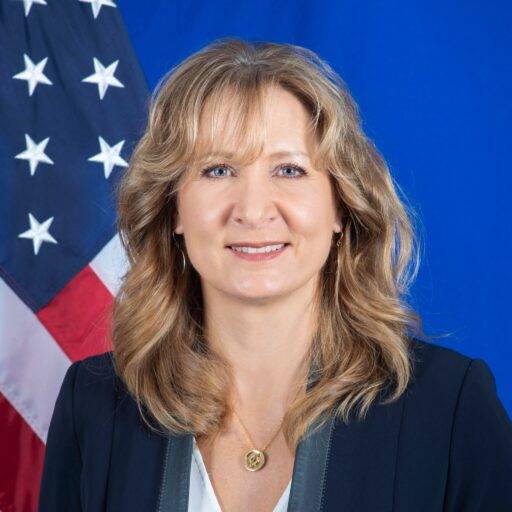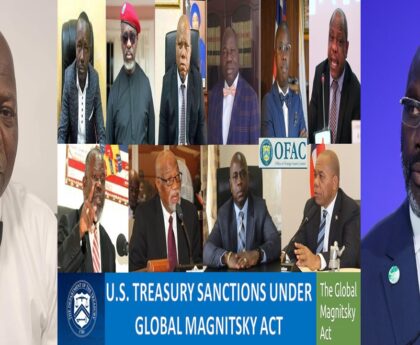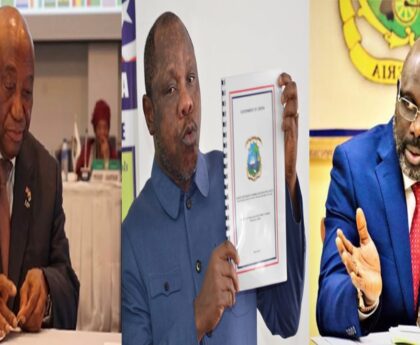Beth Van Schaack, US Ambassador-at-Large for Global Criminal Justice is visiting Liberia, beginning tomorrow, Thursday, amid renewed calls from justice activists for the Weah administration to establish a war crimes court to prosecute alleged war criminals. Details about Ambassador Schaack’s visit are unclear, but she’s expected to meet US embassy officials and Liberia’s leading justice activists, including Hassan Bility of the Global Justice and Research Project. “The visit of of the US War Crimes Ambassador, Beth Van Schaack, is a testament to the fact that Liberia is reneging on it’s international treaty obligations” said Bility in a text message to us. Bility and others have so far unsuccessfully campaigned for the court. Their campaign looked to have been undermined by two controversial decisions by the legislature—the body that has the constitutional power to set up the court. Last year, the House of Representatives voted to cancel out a 2019 resolution by more than two thirds of the body that approved the court. The House asked its members to consult their constituents on the court. The Senate also asked President Weah last year to set up a transitional justice commission to review recommendations of the TRC. Weah himself has backpaddled over his open support for the court. Those moves by the Legislature were on the back of a formal presentation of a bill for the court by the Liberian National Bar Association and civil society organizations.
By Anthony Stephens, New Narratives Senior Justice Reporter
Traditional chiefs and delegates at a 2019 national economic dialogue also backed accountability for past crimes. Bility says they will restate their position on the court to Ambassador Schaack during their meeting with her. “We will be making our case to the US Diplomat and will ask that the US prioritize this issue and encourage Liberia to set up this accountability mechanism”. He also throws out a challenge to the Legislature, often criticized by citizens for alleged poor performance and inconsistency. “I also call on the Liberian Legislature to take actions in the direction of fast tracking the implementation of the TRC’s Recommendations. I personally call on President Weah to deliver on his promise and give justice to the victims. I admonish the President not to allow the contaminated renegades of the old political and civil war orders to distract him from implementing the TRC”, Bility noted.
Looking to America for help
Those comments are echoed in a joint statement by eight leading Liberian and international human rights organizations around the world, including Human Rights Watch, Civitas Maxima, Global Justice and Research Advocates for Human Rights (Bility’s organization), Center for Justice and Accountability, the Secretariat for the Establishment of a War Crimes Court in Liberia and the Transitional Justice Working Group in Liberia. They called on the US to end impunity for past crimes in Liberia.
“The United States government should stand with victims of civil wars-era crimes in Liberia by signaling its support for a war crimes court to deliver justice and to foster durable peace and stability in the country”, the statement by the organizations read.
Key supportive US decisions
The US has shown support for campaigns for a war crimes court for Liberia. In October 2018, the US House of Representatives adopted a resolution for the court and the full implementation of the TRC recommendations.
The US has also been key in prosecuting and convicting some Liberian warlords on perjury and immigration fraud charges, including Mohammed Jabatateh, commonly known as Jungle Jabbah. The former United Liberation Movement of Liberia for Democracy commander was sentenced to 30-year in jail by the Eastern District of Pennsylvania in April 2018. Tom Woewuyu, Charles Taylor’s number two in the National Patriotic Front of Liberia was also prosecuted and found guilty of the same charges three months earlier, but he could not be sentenced because he died of Covid-19 in 2020.
In August, a US District court for the Eastern District of Pennsylvania in a ruling during a civil suit ordered Moses Thomas, a former commander of the Special Anti-Terrorist Unit to pay US$ 84 million to survivors of the St. Peter’s Lutheran Church massacre in July 1990—a ruling Thomas has since condemned.
In June, Moses Wright, another top SATU commander was charged by US authorities with perjury and immigration fraud charges in relation to the massacre.
In an apparent further demonstration of its uncompromising stance on human rights violations, the District Court for the Southern District of Florida convicted and sentenced to 97 years, Charles Taylor Jr., alias Chuckie Taylor, a son of detailed former Liberian President, Charles Taylor for torture and related crimes when he led the dreadful Anti-Terrorist Unit during his father’s brutal rule in Liberia. Chuckie, a US citizen, was prosecuted and convicted in 2009 under the extra-territorial torture statute, which authorizes US Federal courts to exercise universal jurisdiction over persons found in the US who are suspected of torture committed anywhere in the world.
Ambassador’s Visit inspires activists
Ambassador Schaack’s visit has raised hope among activists that the US will pressure the Weah administration to set up the court. These activists insist Liberians are tasty for justice.
“The Liberian people have waited too long for justice and accountability for abuses suffered during the civil wars”, said Adama dempster of the Civil Society Human Rights Advocacy Platform of Liberia and the Secretariat for the Establishments of a War Crimes Court in Liberia.
“The US government has the opportunity to stand with victims of atrocities committed in Liberia’s civil wars by assisting in establishing a war crimes court”.
This story was a collaboration with New Narratives as part of the West Africa Justice Reporting Project.
Source: Frontpage Africa
By Contributing Writer




